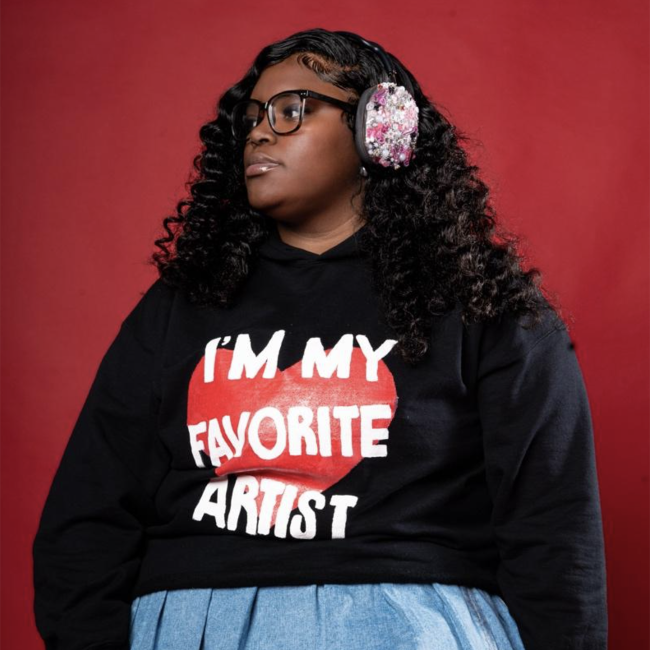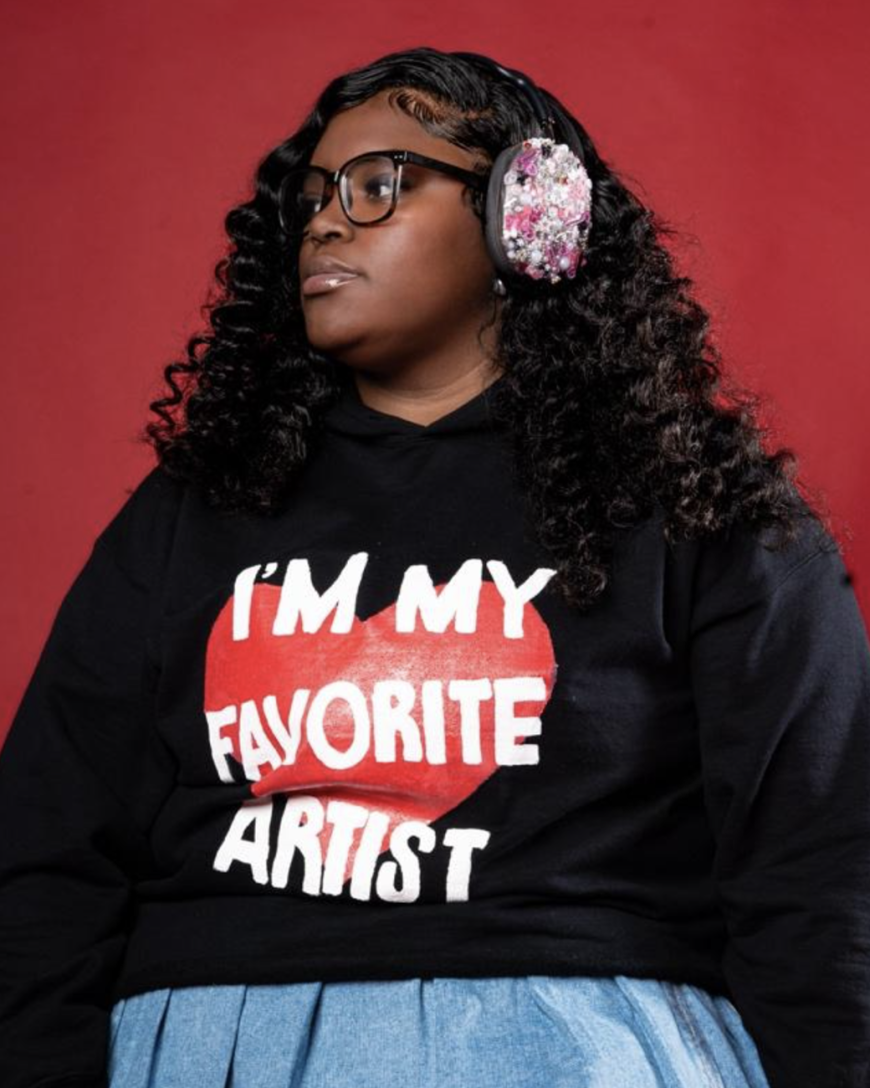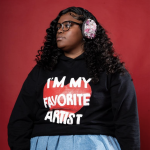The Mississippi AI Collaborative (MSAIC) is an awardee of data.org and Microsoft’s Generative AI Skills Challenge. Through its ecosystem approach, MSAIC has engaged over 4,000 Mississippians in AI skills. Their AI Agency program connects AI-trained students with local nonprofits and small businesses to provide hands-on AI training and customized AI solutions. MyKinzi Roy, an AI Agency apprentice and recent graduate from Jackson State University, now leads as a Graphic Designer and the Brand Director for the Mississippi AI Collaborative.
When did you realize that AI could be more than just a skill, but a way to solve real challenges and contribute meaningfully to Mississippi’s future?
I realized the potential of AI when I was an apprentice at first with the Mississippi AI Collaborative (MSAIC) AI Agency. As we began to work with entrepreneurs in the Jackson, Mississippi area, I saw that AI wasn’t just a tech tool; it helped us turn ideas into impact.
When people understand how to use AI, they gain the same creative power and operational efficiency as larger, better-resourced organizations. But access and education are essential, and training and trust-building are just as important as the technology itself.
MyKinzi Roy Graphic Designer and Brand Director Mississippi AI Collaborative
Tell us about your work at the AI Agency initiative. What inspired you to be a part of this initiative?
At the MSAIC AI Agency, we help small businesses and startups grow by integrating AI into their workflows. As an apprentice, I was trained on a range of AI tools and brought my background in graphic design to support clients in creative and strategic ways. We taught entrepreneurs how to use ChatGPT to develop business plans, then transformed those plans into investor-ready pitch decks using Gamma. We also introduced them to tools for building and embedding custom chatbots on their websites to improve customer experience. In branding sessions, we used Adobe Express’s generative AI features to help them create logos, define color palettes, and establish a cohesive brand identity.
What initially drew me to the program was fear—fear of how AI might impact creative work. Social media often painted AI as a threat to artists and designers. But thanks to Dr. Brittany Myburgh’s encouragement, I joined the initiative and quickly saw a different side of AI. I realized it wasn’t replacing creativity; it was expanding it. That shift in perspective helped me overcome my fears and recognize AI’s potential to empower entrepreneurs, especially here in Mississippi. Now, I’m passionate about helping others see AI not as something to fear, but as a tool to amplify their ideas and impact.
Your work connects you directly with small businesses and nonprofits. How has applying AI in these real-world settings deepened your understanding of its social and economic potential?
Working directly with small businesses has completely reshaped how I view AI. It’s not just advanced technology—it’s a practical tool for leveling the playing field. Many of the entrepreneurs we serve at the MSAIC AI Agency have incredible ideas and strong foundations, but they often lack time, staffing, or access to resources. AI helps bridge that gap. We’ve seen firsthand how using tools like ChatGPT and Gamma have helped entrepreneurs polish their business ideas, and in some cases, win pitch competitions. That kind of momentum can be the spark that turns a vision into a fully operating business.
One example that stands out is a counseling professional we worked with. We helped her integrate a custom chatbot into her website, which now answers frequently asked questions about her services. This simple solution saved her hours of time each week and made her services more accessible to clients. Experiences like this deepened my belief that digital equity is essential. When people understand how to use AI, they gain the same creative power and operational efficiency as larger, better-resourced organizations. But access and education are essential, and training and trust-building are just as important as the technology itself. This work has shown me that AI, when used with intention, has the power to create real economic and social opportunity.
Through this journey, you have learned to use AI and helped small businesses understand its value. What’s one unexpected thing you’ve learned—and one thing you’ve taught others—that’s helped create a ripple effect beyond your own experience/ project?
One unexpected thing that I’ve learned throughout this journey is that mindset matters. I thought learning the tools would be hard, but my experience using the technology has enabled me to shift people’s minds or perspective about AI, letting them know AI isn’t necessarily here to replace your job. If used right, it’s here to help.
Something I’ve taught others was the idea that AI doesn’t have to be hard to work with. When we showed entrepreneurs how to use ChatGPT for tasks like writing social media captions, drafting emails, or even basic prompt engineering, they were amazed! The “I can do this!” moments unlocked a new level of confidence and potential for the entrepreneurs.
I saw AI as a tool to enhance my workflow and design process, even sometimes help me expand on ideas that probably would’ve taken me days or weeks to think of. The tools allowed me to work faster to create content and communications.
MyKinzi Roy Graphic Designer and Brand Director Mississippi AI Collaborative
How has learning about AI helped your career?
Learning about AI has expanded my career. As a graphic designer, I saw AI as a threat to my creativity at first because of what I had seen on social media, but once I started working with the MSAIC, my perspective changed. I saw AI as a tool to enhance my workflow and design process, even sometimes help me expand on ideas that probably would’ve taken me days or weeks to think of. The tools allowed me to work faster to create content and communications. Instead of replacing me, it became like a partner. It’s also helped me beyond my art career, as I’ve gained skills in consulting, digital marketing, and more.
Through the AI Agency, we’ve helped entrepreneurs build a business while using AI. This opportunity has pushed me out of my comfort zone, helped me grow into a multidisciplinary creative, and bridged the gap between art and technology. AI isn’t here to replace my job and creativity; it’s here to help and empower them.
“5 Minutes with” series
These articles share the stories of people around the world leveraging data and AI to drive impact.


